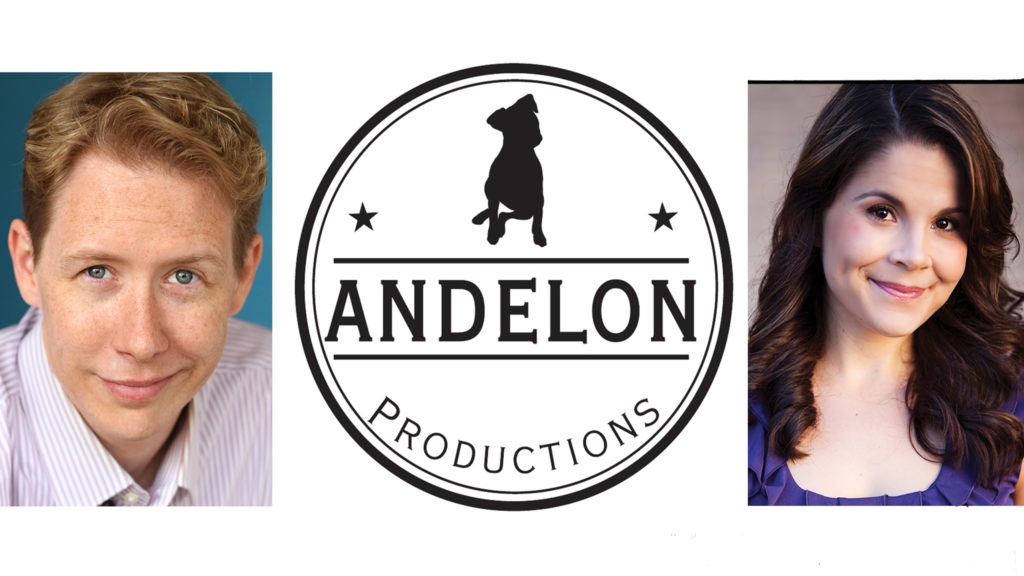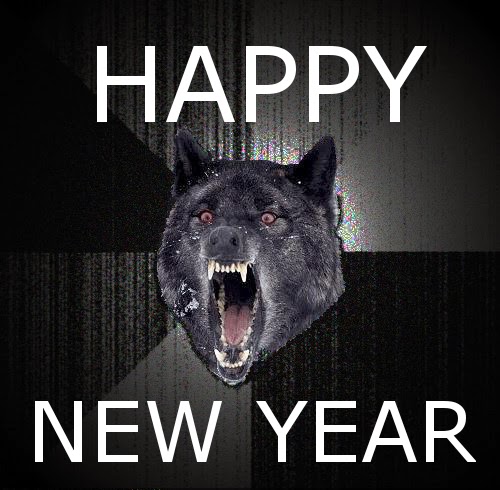
For the last year or so I’ve been looking at my career and trying to make decisions about which way to move it in the future. Even though I’ve been in the entertainment industry for 30 years now it hasn’t been one long smooth ride. Over those three decades I’ve actually had several “careers.”
- When I first started out as a kid doing commercials and voiceovers mostly.
- My awkward phase, around 13-15 when I exclusively played “nerd” characters.
- Late teens to late 20’s – the Sabrina the Teenage Witch years.
- Post 2005 – the producer years.
After this last decade of working almost exclusively behind the camera, with a few on-camera moments here and there, it’s time to start career number five – The “I-don’t-have-a-name-for-it-because-it-has-yet-to-be-defined” Years. For most of my working life many of my opportunities have depended a lot on other people saying “yes” which bred a bit of a reactionary response to the decisions that I’ve made in my work life. I would get a call for an audition, do my best at that audition, and then wait to see if I’m selected for the job or I would pitch an idea, put down a bid for the production, and then wait for the green light. After being beholden exclusively to other people it feels like it’s time to take as much control of my career as I can, especially since 40 is a lot closer than it used to be.
To this end I started thinking about how to make this paradigm shift. Up until now being proactive and taking control meant meeting people in the industry, participating in social media, being caught up on marketing materials like headshots and reels, etc. But this whole process needed to change if I was going to have any real control over what I wanted to do. My brain latched onto the idea of “startups.” You hear all about startups everywhere, it has become a common term in the business vernacular. Just cruise LinkedIn or business circles on Twitter and you can find all kinds of reports, news and advice about “startups.” But nearly all of those articles and reports refer to tech startups, new apps or other tech that supposed to change our lives for the better; it was hard to see how I could fit my goals into the idea of startup structure. So I did some reading.
What is a “startup”?
Before I could really get down to business I needed to know what I was getting down to, so I hit the Internet. I did a search: “what is a startup.” This is what you find. Assuming that you exclude the results that are about creating a startup disk for your computer, there are hundreds of pages of results. After narrowing it down to about a dozen articles, there were three in particular that helped me to define what it is to be a startup and the dos and don’ts that go along with starting one. Of all the articles that defined a start up, the one that worked best for me was this article from FORBES.COM. In it “startup” is defined by Neil Blumenthal, co founder and co-CEO of Warby Parker as:
“A startup is a company working to solve a problem where the solution is not obvious and success is not guaranteed.”
This sounded to me a lot like my current situation where the problem Rene and I are trying to solve (my career direction) did not have a clear solution (because I didn’t have one) and success is not guaranteed (because it’s not). They had other technical definitions as well, directly out of dictionaries, but I don’t want to get off track.
The article also discusses how the idea of “startup” is cultural currency. The concept in the zeitgeist is that startups are exciting and innovative and ready to tackle problems in new ways so other industries adopted the phrase even though they technically aren’t startups. Posers aside, this along with the definition presented by Mr. Blumenthal cemented my resolution that I would approach this year as if I, myself, were a startup. Here comes Curtis 5.0!
So what does one do?
Being an entrepreneur isn’t easy. A lot of people like to fancy themselves as one, but few can actually back up the claim. Fortunately when you’re a new startup, like myself, there are lots of places where you can get a nickel’s worth of free advice and one of those places is Entrepreneur.com. I found a lot of advice here about all kinds of things related to starting a business. A lot of it was retreading well known ideas, but some of the lists were good reminders of the basic principles that are easy to lose track of. The article that was most relevant to me was 4 Best Practices to Avoid Startup Failure. These practices are remarkably applicable to the modern professional actor with just a few minor tweeks to the explanations. I’ll let you go to the original article to read the unaltered breakdowns, but here are my thoughts on the 4 Best Practices:
- Maximize your resources. While all of us in the entertainment biz may want high powered agents and PR firms backing us, that’s not always option and since my plan is all about what I can control maximizing the power of my personal resources is key. All of us, I don’t care who you are (and if you want to fight about it I’ll see you in the comments below), have some resources at our disposal. Maybe it’s a supportive family. Maybe you happen to be really good with Final Cut or other editing software. Maybe you just give good “chat” at parties. Whatever you’re good at and have access to is what you should be using. Not sure what you’ve got? Sit down and write down what you know how to do and what is available to you. And get really basic: a reliable car, a cat that does tricks, an old tuxedo that still fits. You never know what can come in handy and it might be right under your nose.
- Leverage your network. I’m really bad at this. I have great friends and family and they are spread all over this fine globe in a variety of different industries. I always feel guilty about asking them for anything, but anytime I don’t they have always, to the person, told me that I should have said something. You probably have these people in your life too (unless you’re, like, a big ol’ mooch). It’s time to reach out. But the key is not to reach out to just anyone, seek out the people who you would like to emulate or who can encourage you on the course you’ve picked. Don’t ask them to just “hook you up,” but let them be a source of advice or even referrals to people you might not otherwise have access to. For example: I would like to do more Think Fast seminars, a seminar that teaches people how to think on their feet using interactive exercises. A resource available to me is a group of friends who work in the corporate sector in H.R. and training. Speaking to them can let me know what materials I need to have to be able to pitch the seminar and, if it makes sense for their industry, maybe even a shot to do one for their employees.
- Build a learning culture. Pride. Ego. Asshole. These are all traits that may pop up as you are struggling to get things going – especially if you’re a stubborn son of a bitch who really only changes his mind once he’s figured it out and not when his lovely wife tries to save him some trouble by suggesting it earlier. But I’m not speaking from personal experience or anything…
…
…anyway. It really is important to keep an open mind and to be ready to steer the ship in a new direction when the situation requires it. Also, be open to new skills. With YouTube tutorials and a little elbow grease you can learn just about anything. For example: With Think Fast it became obvious that I would need a website dedicated to just that seminar, which Rene had mentioned about a year ago. I finally got around to it and, in order to be able to make it do look the way I wanted it to, I needed to really expand on my Photoshop skills. Am I ready to be hired out as a graphic designer? No, but that wasn’t the goal. In the end I was able to learn what I needed to to get my the website built in a way I liked and that was the goal.
- Have an MVP. This is not a Most Valuable Player, this is a Minimum Viable Product. Actually their breakdown of what that means is pretty relatable:
“No, not an individual. A minimum viable product is the least amount of product or service you can bring to market while achieving two objectives: maximizing value to the customer and minimizing costs.
Good judgment only comes from experience, and experience typically comes from bad judgment. The toughest lessons to learn are usually the most costly in terms of resources and capital, so the best practice for you is the one that keeps your business unique.”
So how does this work for the performer? Focus on what makes you unique or sets you apart and really go for that. For example: you probably recognize a few different commercial actors by defining physical characteristics. The next time you’re watching TV pay attention to the people in the commercials, you’ll see the same people over and over and many of them have defined hair or beards or a general “look” that is clearly their trademark. If we look at the Think Fast example: There are a lot of team building and “outside the box” seminars out in the world, Think Fast is different because it uses interactive exercises that are easy to pick-up and challenging. Take an honest stock of yourself and pick out what sets you apart – then commit to it 100%.
These have all been the “do’s” of treating yourself as a startup, but there are some “don’ts.” Unfortunately I think we’ve reached the point of TL;DR. So next time we’ll look at the don’ts. In the mean time, if you would like to fight me in the comments then get to swingin’ down below.
See you next time.
Like this:
Like Loading...










This, this, all the this!
If you are a creative, this video will sounds very familiar – but it’s a universal message. Lord knows I’ve been down this road a few times. Determination, persistence and touch of naivete is usually enough to win the day – it’s just the “day” in question usually lasts for years.
Share this:
Like this:
Leave a Comment
Filed under actor 101, actor stuff, art, artist, behind the scenes, commentary, doing new things, education, fail, failure, filmmaking, friends, fund raising, general, getting fit, getting started, happiness, how-to, inspiration, jobs, learning experience, making movies, productivity, projects, REVOLUTION, social commentary, video, videos, YouTube